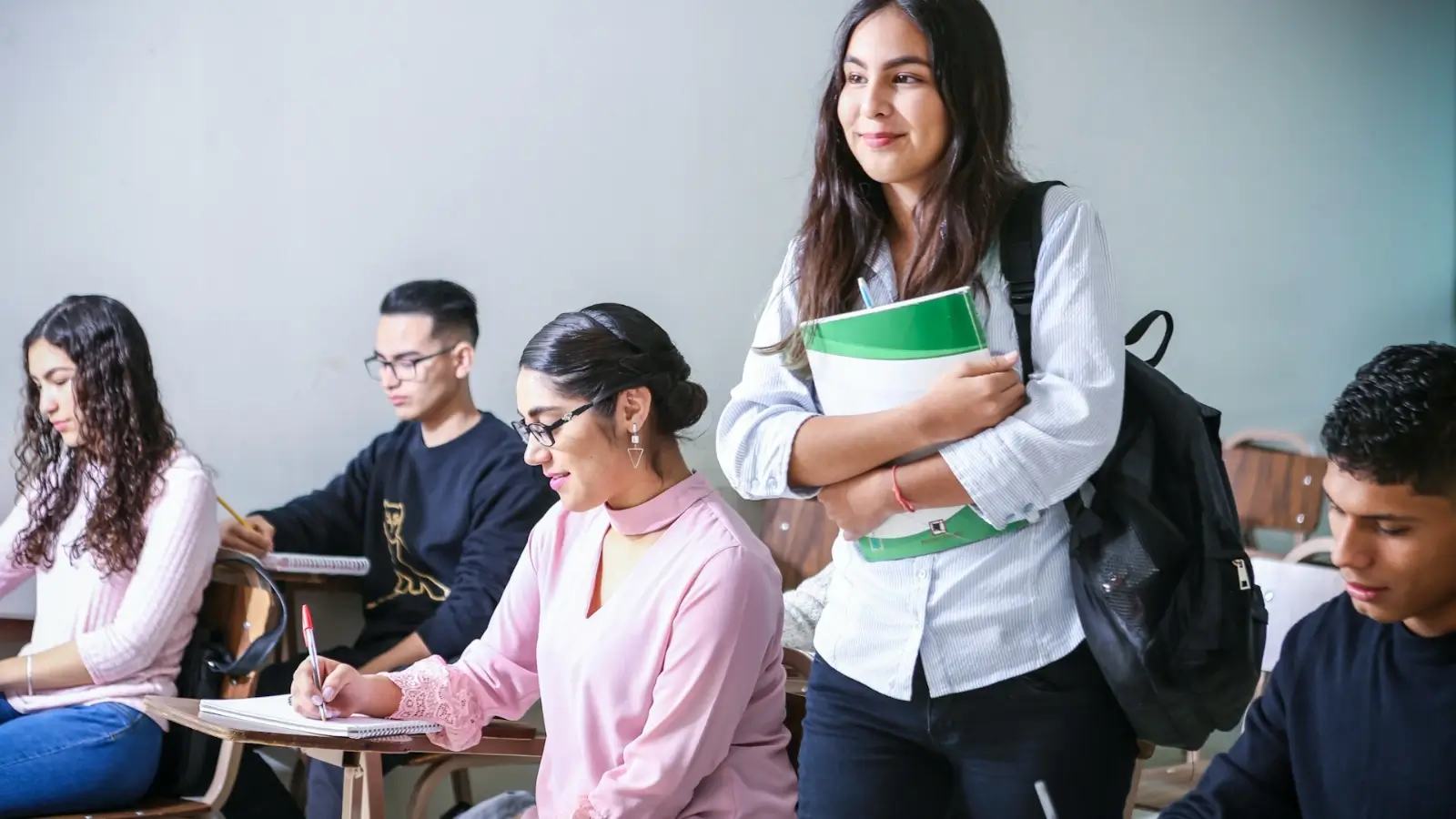Have you ever wondered how to inspire a young mind's imagination with so much focus on stimulation and instructed curricula in the digital age? At first glance, creativity might seem overlooked. Online tutoring can inspire this creativity through exciting and interactive methods with young minds.
Encouraging an Imaginative Environment
Online tutoring encourages students to think beyond textbooks and traditional methods. Tutors often use creative approaches such as anecdotes, illustrations, and challenge-based questions to help students develop their perspectives when tackling issues.
Students can explore ideas in a relaxed environment, unlike traditional classrooms. For example, a tutor may encourage a child to invent a story on which to base an exercise on writing, making education an adventure and making learning much more fun than work.
Personalized Learning Sparks Ideas
Each child learns differently, and web tutors are not an exception. In reaching each of their students, they tailor a lesson to the exact needs of their students. For example, if the student likes art, the tutor may put an art lesson for drawing or images into the program.
This personalized approach not only helps children understand complicated concepts but also makes them feel that their ideas matter. It builds their confidence in their creative skills, encouraging them to take risks and explore different ways of expressing themselves. Many online tutoring companies provide tailored lessons that support this creative development, ensuring that students' individual needs are met.
Interactive Tools Boost Engagement
Some features of online tutoring sites stimulate creativity. These tools include shared whiteboards, interactive games, and multimedia resources. For instance, a science tutor may let a child design and test his or her experiments using simulations.
These tools are helpful for active learners and not for the passive intake of information. This type of hands-on activity stimulates creative ways of thinking and problem-solving, which is necessary for a creative mind.
Experimentation with such active methods helps them make connections and builds their understanding through trial and error, sparking one's creativity all the time. This tends to make the process of learning feel like discovery, hence asking them to think outside the box.
Open-Ended Questions Encouraged
In a traditional classroom, the right answer is almost always emphasized. However, online tutors mostly apply open-ended questions to encourage more thinking on the student's part for better critical analysis.
For example, questions like "What do you think would happen if…?" or "How else could we solve this problem?" seem to elicit out-of-the-box thinking from students. This encourages students to move beyond rote memorization, explore possibilities, and develop their ideas. This process also generates interest, which forms the very base of creativity.
Once children get the motivation to question things and answer those questions, then they perceive the challenges of their lives as development opportunities. This mentality will also help them think more creatively, and they come up with unique solutions and ideas that they may not have thought about before.
Exploring Real-World Connections
Online tutoring usually links lessons to real-world situational applications, which can make such a subject more relatable and interesting. A tutor might connect math problems with budgeting for a fun event or use something in the news to inspire a piece of creative writing.
These links show children how the skills they are learning have a place in everyday life and encourage them to think creatively and critically. It makes learning both meaningful and imaginative, bridging the gap between knowledge and creativity.
Providing Positive Reinforcement
Creativity flourishes in an encouraging atmosphere. Online tutors mostly ensure that there is positive reinforcement whereby even the slightest success is celebrated. Such encouragement will increase confidence and eliminate the fear of failure, which might inhibit creativity.
For example, if the child's idea does not work, the teacher can take a chance to turn that failure into a lesson instead of just failing. Such an attitude makes the child learn from his mistakes and develop a sense of opening up to other things essential for creative growth.
As long as they know that mistakes are part of the learning process, children are much more comfortable with trying other ways. This shift in thought enables them to realize that creative thinking is not about being correct but about enabling one to explore, make mistakes, and try once again until one can come up with a solution.
Encouraging Collaboration
Group sessions or collaborative projects are usually there in online tutoring programs, which permit the student to work on some creative tasks with his team. Through this teamwork, they get exposure to the views and thoughts of others, so their horizon widens for creativity.
These further teach them good social skills of communication and compromise. They hence prepare themselves for subsequent creative works done in schools or elsewhere. With each group activity involving either the tutor or peer group, children learn clearly how to speak out and how to listen to someone else's thoughts.
The whole process of idea exchange enhances their problem-solving skills, along with teaching them how to adapt their ideas based on feedback. Moreover, compromise and negotiation in group work can help children achieve a very important aspect of teamwork, which plays a very important role in executing creative ideas in any environment.
Flexibility Encourages Exploration
One of the significant benefits is flexibility: without schedules and outlined lesson plans, the teachers could always adjust the sessions according to the child's interest and mood.
An advantage of flexibility will enable the tutor to bring up new activities or games, and this gives a refreshing look to the learning experience and a little fun. Incorporating video applications in education further enhances this dynamic approach by offering interactive content that adapts to students' evolving interests. These tools allow tutors to seamlessly switch between different multimedia resources, ensuring each session is engaging and tailored to inspire creative discovery. For example, the tutor changes gear when one student develops an interest in something else and changes that curiosity into a beautiful opportunity for creative discovery.
Building Confidence Through Skill Development
Creativity tends to walk with confidence. It develops skills in a learner at his pace hence a feeling of being capable and empowered.
With the mastering of subjects, students stand ready to take risks creatively. The confidence will push them to come up with unique ideas to solve a tough math problem or even write a catchy essay on some topic.
Creating a Lifelong Love for Learning
Online tutoring does more than just teach facts. It inspires a love for learning by making education enjoyable and inspiring. When kids see learning as a creative adventure, they are likely to stay curious and engaged throughout their lives.
Online tutoring enables a child to utilize innovative tools with personalized attention while being in an environment that can support them. It has nothing to do with mastering topics; it empowers young minds to imagine, explore, and create.
Conclusion
Online tutoring gives the young learner a chance to think differently, explore his passions, and grow creatively. It opens up endless possibilities for curiosity, confidence, and critical thinking. It is through proper guidance and tools that every child can discover the joy of learning and the power of his imagination.
FAQs
1. How does online tutoring benefit shy students?
Online tutoring provides a comfortable environment where shy students feel less intimidated, allowing them to engage more actively in lessons without the pressure of a classroom setting.
2. Can online tutoring improve a student's time management skills?
Yes, online tutoring encourages students to manage their own learning schedule, helping them develop time management skills as they balance lessons with other activities.
3. What makes online tutoring more effective for creative students?
Online tutoring allows for personalized lessons that cater to a student's unique interests, helping creative students explore their passions in a way that traditional methods may not support.

















